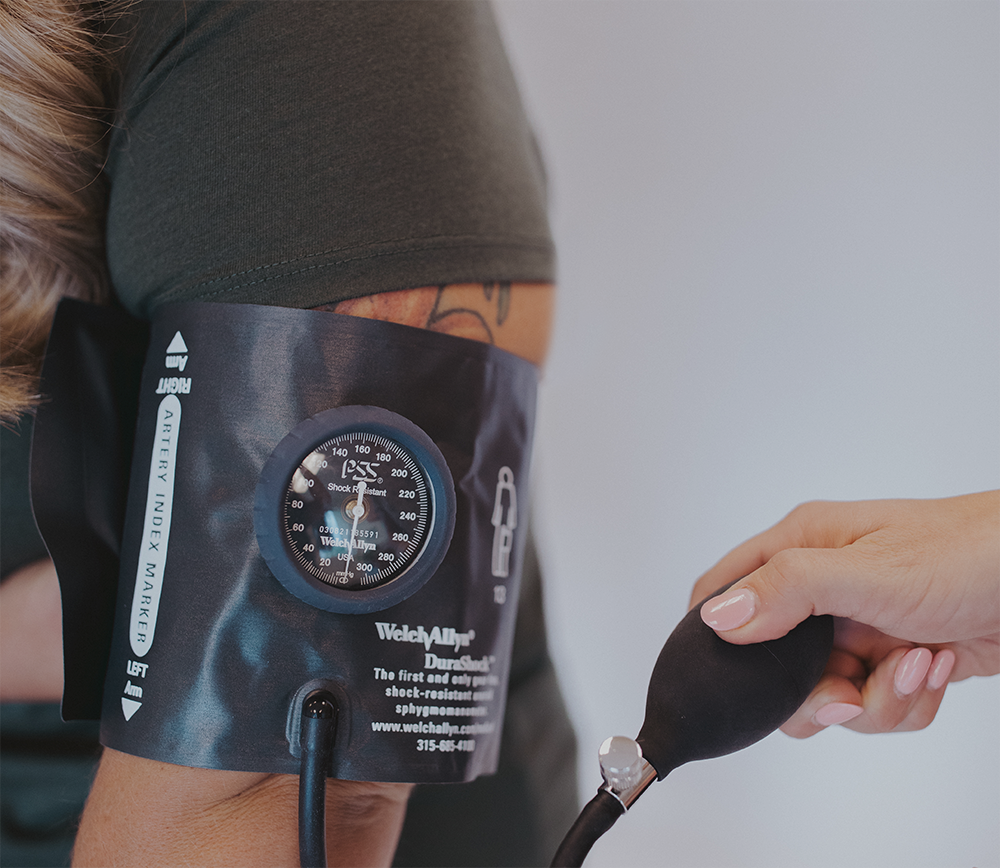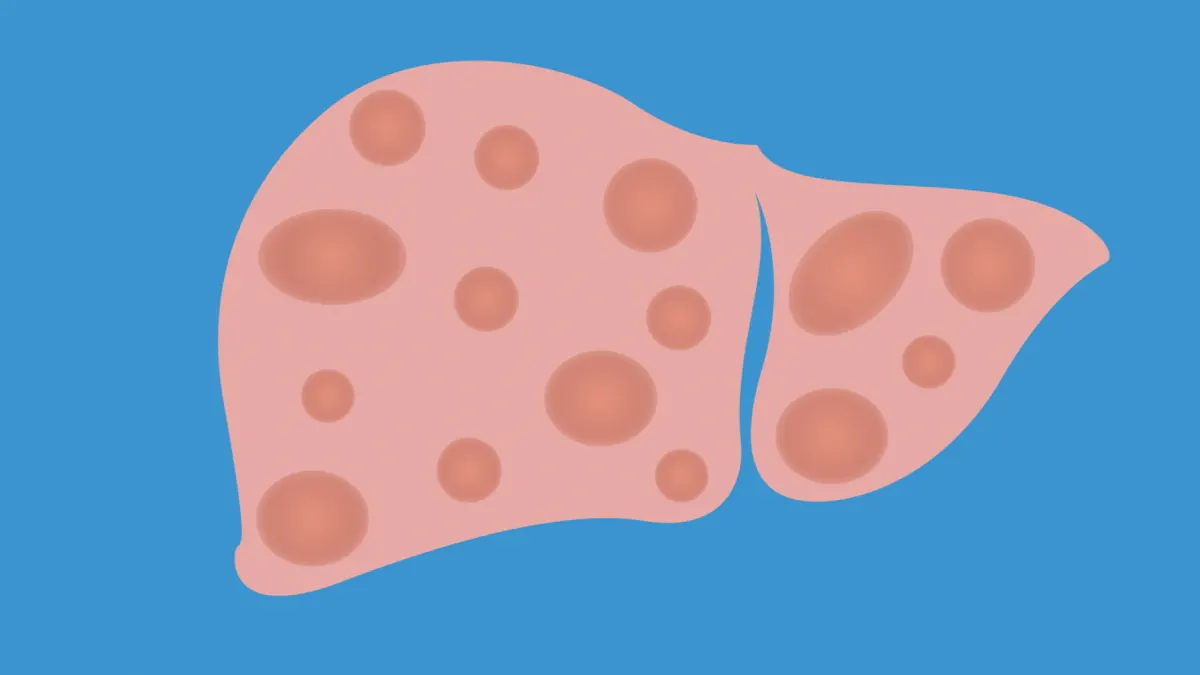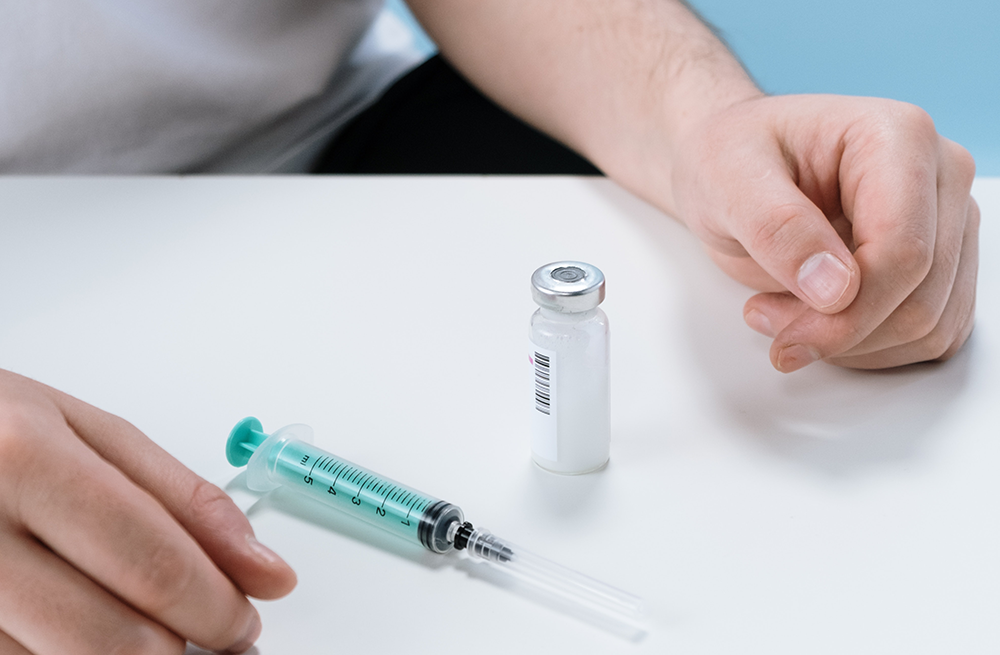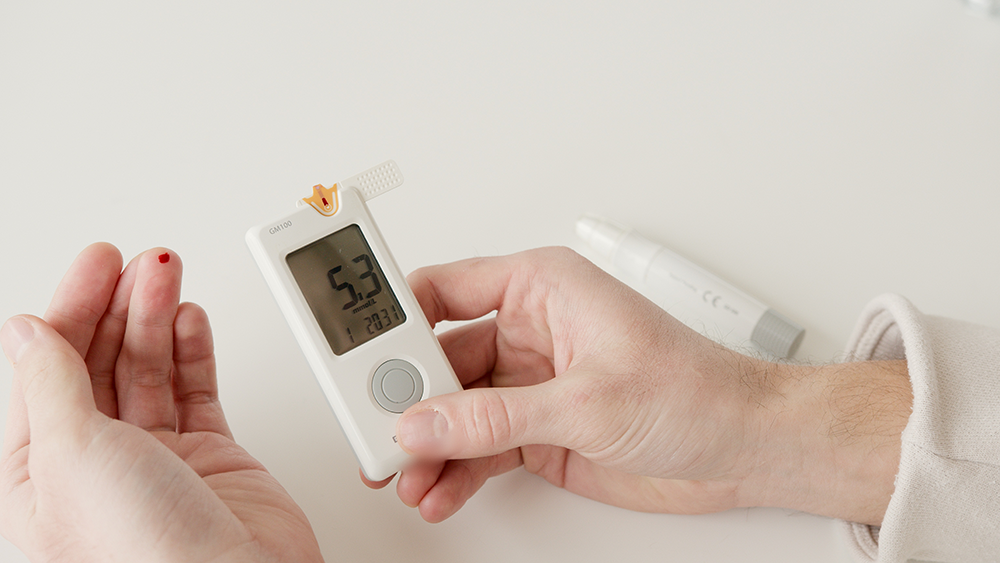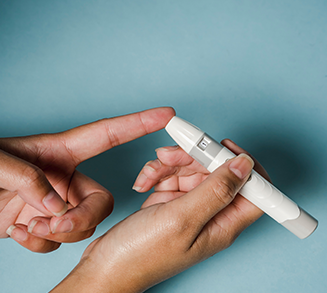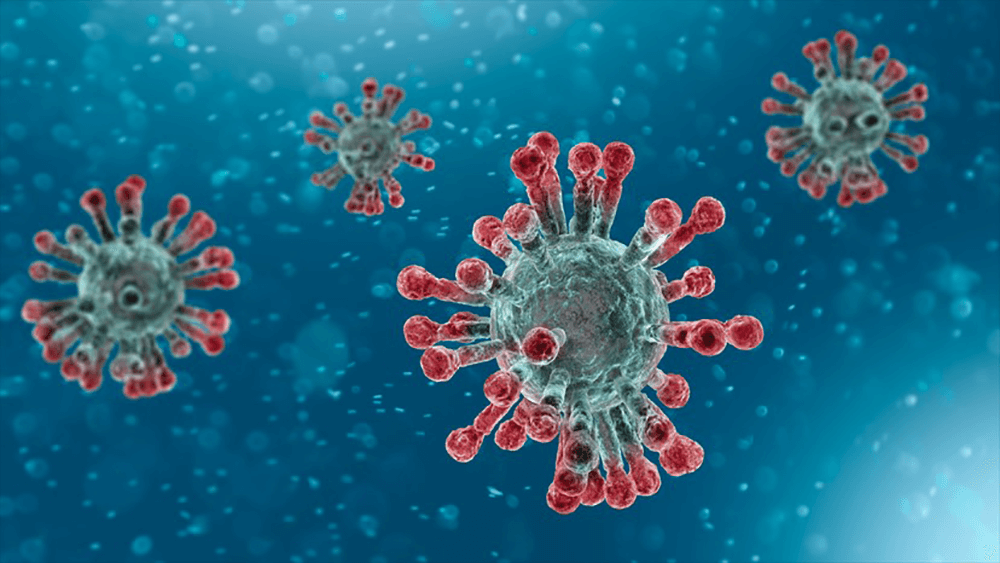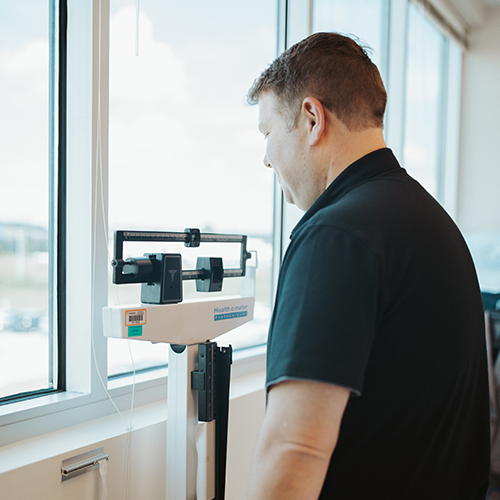The term “diet” frequently surfaces, encompassing various phases like the pre-operative liquid diet, the post-operative soft foods phase, and the long-term commitment to a healthier diet. However, it’s crucial to recognize that the notion of dieting can be misleading and potentially harmful if misinterpreted. The primary aim following bariatric surgery is to guide patients away […]

In today’s fast-paced world, the conversation around enhancing mental wellness is more vital than ever. The rise of digital platforms has sparked discussions on emotional well-being and the importance of shedding unhelpful habits and mindsets. Mental health, encompassing our emotional, psychological, and social well-being, plays a crucial role in every facet of our lives. It […]
Undergoing bariatric surgery is a significant step towards a healthier life. However, the journey doesn’t end with surgery; it continues with how you adapt and maintain your new lifestyle. An essential aspect of this post-surgery journey is monitoring your weight. The process of weighing yourself after bariatric surgery is crucial but must be approached with […]
Our emotions significantly influence our dietary habits. It’s quite common for intense feelings to disrupt our eating patterns, often leading to a sense of losing control over food intake. This phenomenon connects closely with the relationship between depression and weight gain, which isn’t solely a result of external factors but also involves chemical imbalances in […]
For those who have had bariatric surgery, managing weight gain after the holidays is as important as being cautious during the festive season. The festive period, with its array of tempting foods and celebratory events, often leads to a slight increase in weight. This gain, though seemingly small, can accumulate and potentially hinder the progress […]
Several years ago, a study analyzed a group of patients and how bariatric surgery improves long term quality of life in type 2 diabetics. STAMPEDE (Surgical Treatment and Medications Potentially Eradicate Diabetes Efficiently) trial is the largest randomized trial with the longest follow-up. The evidence presented found potential benefits of bariatric surgery for patients who have uncontrolled […]
A weight loss stall after bariatric surgery can be very frustrating, especially if you have experienced success thus far on your weight loss journey. You can feel defeated when the number on the scale doesn’t budge despite all the hard work you have put into your health journey. 8 Tips to Overcome a Weight Loss […]
The idea of losing weight may seem so achievable, that is until life gets in the way. Finding time to incorporate healthy activities and self-care can be hard to balance between work, family matters, social obligations, and keeping the house in order. In this blog, we give you some tips for how to lose weight […]
Weight loss after bariatric surgery is centered around eating a healthy diet, with many patients wondering if they should be tracking calories vs. macros to optimize their journey. Nutrition after bariatric surgery is a key component to achieving long-term weight loss success. With all kinds of fad diets emerging, one of the most fundamental concepts […]
Obesity is the most significant health epidemic in the world with studies finding that obesity can shorten life expectancy by up to 10 years. Every year, around 2.8 million people die due to weight related health complications making obesity the 5th leading cause of death worldwide. The reality is that the obesity directly or indirectly […]
Weight fluctuations after bariatric surgery are more common than many patients are led to initially believe. Weight loss surgery can help patients lose a significant amount of weight; however, it does not come without changing lifestyle habits, including diet and exercise. Weight fluctuating between +/- 5 to 10 pounds is completely normal and happens to […]
Talking to a loved one about obesity can be a difficult conversation. Obesity affects nearly 42% of the American adult population, so the chances that you know someone who is suffering from this disease is very high. In most cases, your loved one likely knows they are overweight and are aware of the complications of […]
Obesity is quickly becoming the most consequential health epidemic in the United States. Obesity is defined as the accumulation of body fat to the point where it becomes detrimental to your health. The effects of obesity on your health are substantial. As an individual’s weight increases, so do the risks of developing significant medical issues […]
There is a strong link between obesity and hypertension. Many studies have related obesity and hypertension, placing patients at an increased risk of long-term health effects. Essential hypertension is a type of high blood pressure resulting from lifestyle habits, not a medical condition. Essential hypertension is often caused by obesity and an unhealthy lifestyle. Hypertension is the […]
Finding confidence after bariatric surgery isn’t hard in the first few months post-operatively. One of the many benefits of bariatric surgery is the confidence you will gain after losing weight. The first few months after surgery are euphoric—the weight is coming off, and you feel much healthier. In many cases, patients will maintain most of […]
With more than half of society considered obese and roughly 20% in a weight range that would qualify them for weight loss surgery, much attention has been focused on treating obesity more as a medical problem and less of a social concern. Obesity has become one of the most significant public health risks and affects […]
Weight loss surgery adds a lot of stress to your life and can ultimately lead to addictions after bariatric surgery if you are not managing your mental health properly. Many bariatric patients suffer, or have suffered, from psychological conditions such as anxiety, depression, loneliness, and difficulty handling the social stresses of being overweight. Bariatric surgery […]
Bariatric surgery impacts a woman’s menstrual cycle by helping women lose a significant amount of weight and better regulate their hormones and bodily functions. Studies have found that bariatric surgery is the most effective method of treating irregular periods in obese women resulting in a 35% decrease in irregular menstrual cycles. Bariatric Surgery Impacts a Woman’s Menstrual […]
When you need to lose 100+ pounds, getting started on a weight loss plan can be daunting. Most of our patients tell us that the weight gain happened over a period of several years, but it is one triggering event that acts as a “wake-up call” to their health. They might’ve held a little extra […]
After bariatric surgery, strenuous exercise can be very challenging depending on your mobility. However, that doesn’t mean you can’t lead a healthy life. Thankfully, there are ways you can lose weight without exercise after bariatric surgery and without following an intense workout routine. We put together the following advice to help you lose weight when […]
There is a strong link between obesity and pregnancy complications which can lead to long term health concerns for both the mother and the baby. Women who are overweight and looking to become pregnant may be at risk of pregnancy and delivery complications. These complications come when a mother is considered overweight before becoming pregnant. […]
Diabetes is a condition in which the body is unable to produce insulin properly. This causes excess levels of glucose in the blood. The most common types are type 1 and type 2 diabetes. Maintaining your blood sugars in a safe range may minimize the symptoms you experience. Short-term symptoms of high blood sugar can include frequent thirst […]
Metabolism is the chemical process of converting calories into energy, otherwise known as how fast your body will burn the calories you consume. Having a high metabolism correlates to a better ability to lose weight and keep weight off. Several biological and physiological factors (gender, age, body composition, genetics) contribute to the rate at which […]
Non-alcoholic fatty liver disease and obesity are strongly correlated. Non-alcoholic fatty liver disease (NAFLD) is a condition in which an individual has excess fat stored in the liver cells. As the name suggests, this type of fatty liver disease is not caused by excessive alcohol consumption but instead is a result of excess weight. Non-alcoholic […]
Like any major surgical procedure, there is a risk of blood clots after bariatric surgery that could lead to serious health concerns if not addressed early on. A blood clot is a clump of blood that forms in the arteries (which carry blood away from the heart) or the veins (which carry blood to the […]
There is a significant link between obesity and cancer that many people do not appreciate. Diabetes and heart disease have links to obesity that many people understand. But cancer, a word no one wants to hear, is rarely discussed as a complication of obesity. Did you know, obesity increases your risk of 13 different cancers? […]
Diabetes affects nearly 463 million people worldwide. In America, where the standard American diet consists of high carbohydrate foods, diabetes affects about 10% of the population, with 90% of all cases being type 2 diabetes. Given the rising trend in the rates of obesity, it appears the incidence of diabetes will continue to rise. Bariatric […]
The primary goal of diabetes treatment and management is to manage the blood sugar/glucose levels better while avoiding drops in the glucose levels to the degree that the patient develops symptomatic hypoglycemia. Diabetes is the 7th leading cause of death worldwide and is the most expensive long-term disease to treat. In the US, where the […]
The primary goal of diabetes treatment and management is to keep the blood sugar/glucose levels as close to a normal range as possible (around 100 mg/dl) while avoiding drops in the glucose level to the degree that the patient develops symptomatic hypoglycemia. The techniques to accomplish this center around lifestyle changes (diet, exercise, weight loss, […]
Diabetes is a hormonal condition in which an individual experiences consistently high blood sugar levels. When the glucose levels in the blood are persistently too high, this can ultimately impact the body’s organs and tissues, resulting in long-term damage. Understanding Insulin Diabetes is due to either the pancreas not producing enough insulin or the body’s cells not responding properly […]
Diabetes mellitus (DM) is an endocrine (hormonal) disorder characterized by frequently high blood sugar levels over a prolonged period of time. Our glucose (sugar) levels in our blood are tightly regulated by insulin (a hormone made by the pancreas), which is designed to keep our blood sugar level in a reasonably narrow range. When the glucose levels in […]
Getting a good night’s rest is an essential aspect of achieving overall wellness. Sleep is the time when your body can heal and repair itself and impacts many of your bodily functions, including your mood, mental clarity, immune system, weight, and overall health. The Science of Sleep While you sleep, your body cycles through four […]
The national obesity problem affects all generations—20 percent of adolescents and 40 percent of adult Americans are obese. In most cases, obesity starts with genetics and is exacerbated by poor diet, little or no exercise, and poor sleep habits. Beating obesity can happen, though it won’t happen overnight.
PCOS is an endocrine condition in which the female reproductive hormones are off-balance and result in infertility in women of childbearing age. Women who experience PCOS may have irregular periods, high androgen levels, and the frequent development of ovarian cysts. Although it is unclear what exactly causes PCOS, it is believed to be a result of increased […]
Polycystic Ovarian Syndrome (PCOS) is a hormonal imbalance that affects 6 to 12% of American women of childbearing age. This common disorder causes the ovaries to enlarge with numerous fluid-filled cysts (follicles) that do not regularly release with ovulation. Although not understood completely, scientists believe that PCOS causes are due to a combination of genetic […]
Polycystic ovarian syndrome, PCOS for short, is an endocrine condition in which the female reproductive hormones are off-balance and result in infertility in women of childbearing age. Women who experience PCOS may have irregular periods, high androgen levels, and the frequent development of ovarian cysts (small fluid-filled sacs within or on the ovaries) and presents […]
If you have ever researched bariatric surgery, you have probably heard the term “hiatal hernia.” A hiatal hernia occurs when part of the stomach slides into the chest through a hole in the diaphragm called the hiatus. When this happens, it places the stomach in an unnatural position, causing a range of problems from reflux […]
Hormones are the body’s chemical messengers produced by the endocrine system that regulate every function from breathing to eating and reproducing. In certain cases, an individual’s endocrine system will not function correctly, leading to a hormonal imbalance. When the hormones are out of whack, specifically for those weight-regulating hormones, it can make it harder to […]
Within the last decade, we have learned a lot about hormones and their impact on our weight. Hormones are chemical messengers made by endocrine glands (glandular organs) in our body that regulate various processes from how we sleep, grow, reproduce, and metabolize food, to name a few. The most commonly known glandular organs are the […]
There is a common belief that men lose weight faster than women under the same circumstances. And this belief reigns true in most cases. I see this all the time in my practice, where men seemingly have to do very little to lose weight compared to their female counterparts.
The coronavirus, officially known as COVID-19, is a virus that has gotten international attention in the last few months. Since the initial outbreak in Wuhan, China, this virus has spread rapidly across countries, inciting fear in many individuals. But among all the media and news reports, what sources can you trust? And what does this […]
The Center for Disease Control and Prevention (CDC) is warning Americans about the spread of the coronavirus (officially called the Covid-19) in the U.S. So we wanted to take a pause from our regular blog conversations and address healthy living from a different angle. Today we are giving you all the tips you need to […]
Dietary modifications may be the most direct and obvious way to keep your weight within healthy levels and help control your blood sugar. Yet, there are other techniques to supplement your journey along the way as well.
The most direct way to impact blood sugar levels is through a healthy diet. Blood sugar or blood glucose is directly affected by the foods that we eat as carbohydrates are readily converted into glucose, entering the bloodstream and becoming blood sugar.
Have you noticed a spike in your blood sugar levels? Maybe you are under immense stress, or haven’t had the best diet lately, or have been fairly inactive. Even a big, carb-heavy meal will lead to higher blood sugar. So, just because you once registered high blood sugar doesn’t mean you’re immediately at risk of […]
Heart disease is one of the top killers in America. Even though there are heart problems that are a result of genetics, many heart conditions have been linked to poor diets and other unhealthy behaviors such as cigarette smoking and a sedentary lifestyle.
If you have been following this blog series, you now know what your metabolism is, the factors that affect it, and how dieting can damange it. There are several biological and physiological factors (gender, age, body composition, genetics) that contribute to the rate in which your body burns calories for fuel and they are typically […]
Metabolism is the process in which your body converts calories into energy, explaining why there is a lot of talk around metabolism and your weight. We have all tried dieting in an effort to shed some lbs, but what you may not know is that the constant dieting, caloric restriction, and overtraining is making it […]
We have all heard about the connection between your metabolism and your weight. But do you really understand what that means? In this blog we are going to dive into the basics of your metabolism and how it affects your weight.
Hormones are your body’s chemical messengers. They travel throughout your bloodstream to aid in optimal organ functionality. If your hormones are not functioning properly or are at abnormal levels, there can be imbalance in your body can cause weight gain, hair loss, infertility, and so much more.
Hormones are chemical messengers that regulate processes in our body and are one factor in causing obesity. The hormones leptin, ghrelin, insulin, sex hormones and growth hormones all influence our appetite, metabolism, and body fat distribution. People who are obese have certain hormone levels that encourage abnormal metabolism and the accumulation of body fat.
The thyroid, which is a small butterfly-gland in the front of your neck, regulates your metabolism. The thyroid produces a hormone that is responsible for many bodily functions. Thus, it is imperative to have optimal circulating levels. Yet, an estimated 20 million Americans have some form of thyroid disease and up to 60% of these people are unaware […]
By making lifestyle choices that emphasize physical and mental stimulation, you can uncover ways to control the health of your mind and body at any age. Life in our golden years can be filled with whatever you want—excitement and adventure, relaxation and peace or maybe a bit of both. If you are over the age […]
You’ve been working on improving your self-esteem by engaging in positive self-talk and by treating your body to healthy food and exercise. These are great ways to build self-confidence and an overall sense of self-worth. Yet in order to truly live our healthiest lives, we need to address our whole self: our minds, our bodies […]
Body mass index (BMI) is a measurement of a person’s weight relative to their height. It is what our practice, and insurance companies, use to qualify a patient for weight loss surgery. So today we are going to breakdown the BMI calculation and let you in on what it really measures.
You know the importance of talking to yourself with compassion and kindness when it comes to improving your self-esteem. The kinder the self-talk, the greater the self-esteem.
There is no way around it. In order to truly live our healthiest lives, we need to address our whole self: our minds, our bodies and our beings (or spirit). In order to improve our self-esteem, we must work on improving our relationships with ourselves. First, we have to deal with the mind and make sure […]
In the months following weight loss surgery, it is very common to notice rapid and consistent weight loss. This is due to the caloric restriction as a result of each weight loss procedure. However, there will come a time when weight loss may seem to slow down or even stop. And I’m not talking about […]
Every year, October 11th marks World Obesity Day—a day to raise awareness for the treatment options and action plans for individuals struggling with obesity. As stated before in previous blogs, obesity is a disease that is quickly becoming the largest health epidemic in the world. With more than 28% of the world population estimated to be obese, it is […]
Social media has become a great tool to stay in touch with old friends, express your creative side, and even promote a brand or a business. However, social media is also the root of many individuals’ low self esteem. With the deceitful nature of social media—people posting edited photos of themselves in good lighting or […]
Many patients come to see us at Live Healthy MD because they have failed at pretty much every attempt to lose weight. As the prevalence of obesity continues to rise, more and more physicians and professionals in this field of study begin to recognize it as a disease. For many who have tried and failed to lose weight on […]
The Talking it Up Show with Arlean Edwards is a local production that interviews keynote speakers within the CSRA. I, Dr. Jacome, was invited to join Arlean on set in a series of videos where I talk about what it takes to live healthy. This is the fifth video we are sharing from this […]
Self esteem is the confidence an individual has in their own ability to achieve their goals, how they quantify their self worth, and how much self respect they have. We all go through periods when we have high self esteem and periods when we have low self esteem, fluctuating, most often, as a result of […]
As a medical weight loss physician, I see many patients who complain about a lower quality of life due to their excess weight. However, weight gain and the disease of obesity does not just affect your self-esteem and the activities you are capable of participating in. If left untreated, obesity can contribute to many debilitating […]
Self-Image is exactly what is sounds like… the way you see yourself! There are a lot of “self” words that go together to make up our overall sense of self-worth, or our own sense of value. Remember that the more we value ourselves, the more we improve our relationship with our self, the better we […]
It may be the day after Valentine’s Day, but lets continue this theme of hearts. Your heart is the most important organ in the body as it pumps blood throughout the veins, providing the body with oxygen and nutrients needed for survival. But what happens when the amount of blood that flows through your veins […]
If ever there were a combined pair of words that had the bariatric world buzzing, it’s these two: fat-shaming. These two words can evoke intense emotions for those who have, or who are, suffering from the disease of obesity. Similarly, the family members and loved ones of those who suffer from the disease of obesity […]
Weight loss patients often obsess over the number on the scale. As an RD (registered dietitian), I can’t tell you the number of times I’ve heard from patients how they just want to weigh a certain weight or lose that last 10 pounds. Too often, patients lose sight of what they have already accomplished and […]
At their first monthly follow-up visit with me, patients often remark on how much better their knees feel. Even though some of these folks lost 10 or more pounds in this first month, their reports of “less pain when I climb the stairs,” or “I can walk the block again without my cane,” seemed like […]
Has anyone ever complained about your snoring? Maybe someone you love is snoring so loudly that it seems as though wild animals are attacking you in the night. Everyone in the house is tired from sleepless nights either from your snoring or your relative’s snoring. Snoring can be a serious concern if it can be […]
Diabetes has come to be a household term. With the obesity epidemic on the rise, diabetes can be one of the first signs of an unhealthy lifestyle. Diabetes is a disease that is characterized by higher than normal levels of sugar in the blood and not enough insulin to manage these levels
Staying on top of your goals following weight loss surgery can be difficult. It may feel like the temptations around you are unbearable, especially as Halloween just passed and the holidays begin to roll in. As a physician who has practiced bariatric surgery and medicine for 23 years, I have seen many patients succeed and equally […]
As a bariatric surgeon, I have found that patients are more likely to have greater success with their weight loss following bariatric surgery when it is performed at a lower, obese weight. A recent data study conducted by researchers at the University of Michigan, Wayne State University and Henry Ford Health System supports this idea.
It comes as no surprise that obesity can lead to heart disease, among other deadly diseases. Obesity is defined using a person’s body mass index (BMI). However, being categorized as “obese” is not the only cause of heart disease. In this blog we will discuss what heart disease is and the habits you are doing right now […]
Obesity is quickly becoming the largest health epidemic in the United States. With the increasing portions of food at restaurants and the continued need for fast, cheap food, America has taken the lead for the most obese country in the world. Physicians are now beginning to recognize this problem as a disease. Therefore, it is […]
Losing weight is a very difficult challenge. Anyone who has tried knows this very well. We were designed to store extra fuel in the form of fat during the good times (feasting) and hold on to fat during the bad times (starvation). Fat in our body is ultimately a way we store extra fuel (carbohydrates) […]
blog

The topic of mental health has been swirling since the rise of social media. Whether talking about how to manifest your emotions or let go of things that don’t serve us, we can all agree that mental health is essential to finding fulfillment in life.

Nutrition after bariatric surgery is the most critical component to achieving long-term weight loss success. In this bariatric nutrition guide, learn everything you need to know about bariatric nutrition pre-op and post-op and nutrition basics.

Excess sugar consumption can increase your risk of many health conditions, including diabetes and obesity. In this guide, we give you the tips to reduce your sugar intake and improve your health.













